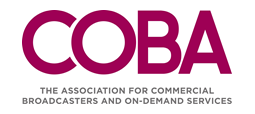Westminster Media Forum June: COBA’s speech
Good morning, so as the only representative of non-public service broadcasters on this panel, I am delighted to be the multichannel guinea pig in this morning’s experiment into the effects of crowding out by public service broadcasters.
I have three points to make; the first is that from where I am standing – quite literally as it turns out – PSBs are in a very strong position. Linear broadcasting for the PSBs and their portfolio channels have nearly three quarters of the UK market. In on-demand, free to view VoD services – primarily the PSBs – account for two thirds of the market for long form content. So the biggest providers of long form content are not Netflix or Amazon but the BBC iPlayer, ITV Player and 4oD.
So there is competition, but there is also opportunity, and PSBs are successful companies competing successfully. The proof of that is in how ITV’s profits were up 23% this year and shareholders got a special dividend of £250 million pounds. In the words of its CEO, “ITV is throwing off cash”. I am not entirely sure what that means but it sounds like a great place to be.
My second point is that PSB status has been crucial to this success, not just for the PSB channels but also for the PSBs’ wider businesses. The two biggest challenges broadcasters have faced in recent years are probably digital switchover and on-demand. PSBs have responded to both successfully in no small part because of their PSB status. ITV can show the X-Factor on its PSB channel and broadcast the Xtra Factor straight after on ITV2, flowing audiences to its digital channels. Or a PSB can drive its VoD service with the content it commissions under its PSB obligations, content which has built its profile in the shop window of its PSB channel. Any broadcasting group can do the same, but PSBs have a particular advantage because they have a bigger market presence through their PSB benefits of prominence and universality.
So my second point is that the PSB system has proved remarkably flexible in helping PSBs respond to technological change. In case any architects of that system are here today, I for one am sure that that flexibility was by far sighted design, not accident.
My third point is that the PSB licence should reflect those additional revenues from wider services. This goes to the heart of the PSB trade-off between benefits and duties that realises the value of the PSB licence on behalf of the public. We must ensure that this trade-off is balanced as new opportunities emerge in the digital age.
Ofcom has already said that the benefit to the PSBs’ digital portfolio channels will be included in the value of the licence. We now need to do this for PSBs’ VoD services. I would expect the extra value to be small right now, but it would grow as VoD revenues increase over the course of the licence period. In the short to medium term I believe it could make a difference if a genre such as children’s is in crisis.
In our view, extracting this value is crucial not just to safeguard against crowding out by PSBs, but to ensure that the full value of the PSB licence is realised on behalf of the public in the digital era.
Thank you.
